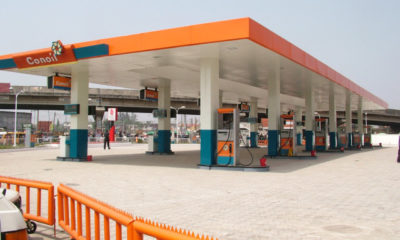In order to ensure Nigerians purchase Premium Motor Spirit (PMS), popularly known as petrol, at a uniform price across the country, the Federal Government spent N173.2billion for the equalisation of over 11.6 billion litres of petrol between 2019 and 2022.
This was disclosed in the data obtained from the Federal Ministry of Petroleum Resources on Tuesday.
This information was contained in data gotten from the Federal Ministry of Petroleum Resources on Tuesday.
However, checks by Investors King revealed that the nation still confronts disparity in the sales of petrol by marketers in the country.
It was gathered that the Federal Government had thought the disbursement of the huge fund would bring about fuel price uniformity.
The Nigerian Midstream and Downstream Petroleum Regulatory Authority is charged with tye duty of ensuring that price uniformity of petroleum products is achieved, hence, the reimbursement of marketers for trucking products to filling stations anywhere in the country.
A document obtained from the FMPR in Abuja, on the scorecard of the ministry since 2019, revealed that over N173.2bn had been disbursed to equalise the cost of petrol nationwide.
Despite the hundreds of billions spent on PMS price equalisation, the cost of the commodity has hardly been equal in various states, outside Lagos and Abuja, Investors King has learnt.
While PMS price goes between N179 and N180/litre in Lagos and Abuja, the cost of the commodity in many independent retail outlets in other states is usually higher than N250/litre.
Analysts have said that this wouldn’t be the first time the nation would be experiencing price disparity in the oil sector as the trend has been for years in all 36 states and FCT.
Speaking on how government has been trying to nip in the bud, smuggling of petrol across Nigerian borders, the Minister of State for Petroleum Resources, Chief Timipre Sylva, noted in the document that a total of 255,659 truck-outs were equalised during the review period, adding that, “11,622,926,494 litres (of PMS was) equalised. N173,200,284,779 (approx.) equalisation paid. 1,277 supplying vessels tracked. 25,525,688,042 litres of total PMS discharged.”
Sylva further stated that 66.7 million litres of PMS were the average daily sufficiency during the period, saying that the total truck-out volume was 24,346,614,589 litres.
According to him, the target of the FMPR was to ensure energy sufficiency in power and petroleum products, as well as reduction in the volume of smuggled PMS through improved technology.
Sylva disclosed that the key challenges to achieving these targets were market infractions, defaulting marketers, delay in submission of out-turn forms by marketers, arrival/discharge quantity variation, and sharp practices by operators.

 Billionaire Watch2 weeks ago
Billionaire Watch2 weeks ago
 Startups4 weeks ago
Startups4 weeks ago
 News4 weeks ago
News4 weeks ago
 News4 weeks ago
News4 weeks ago
 Bitcoin4 weeks ago
Bitcoin4 weeks ago
 Naira4 weeks ago
Naira4 weeks ago
 Forex3 weeks ago
Forex3 weeks ago
 Treasury Bills4 weeks ago
Treasury Bills4 weeks ago





















